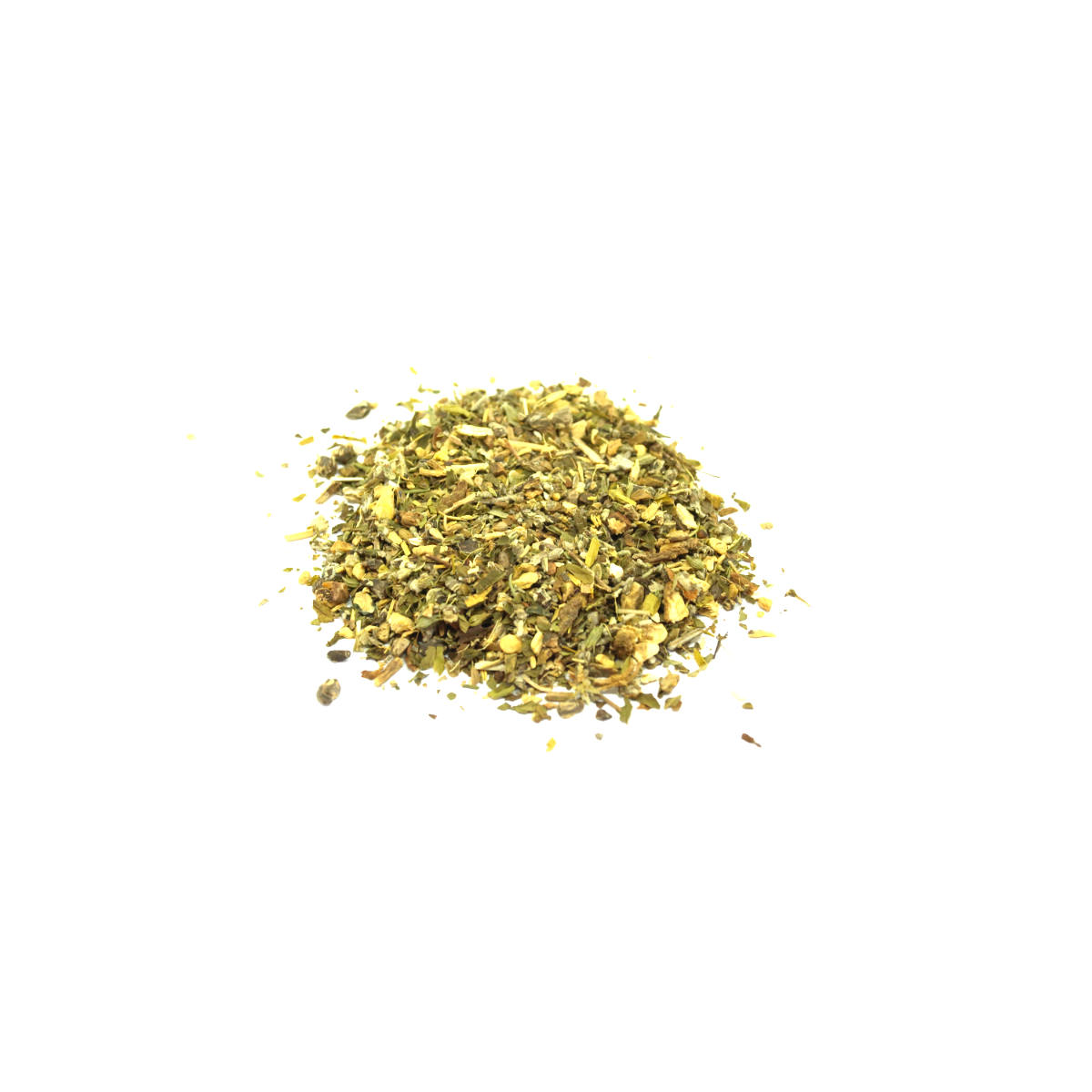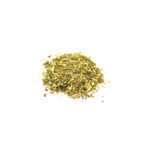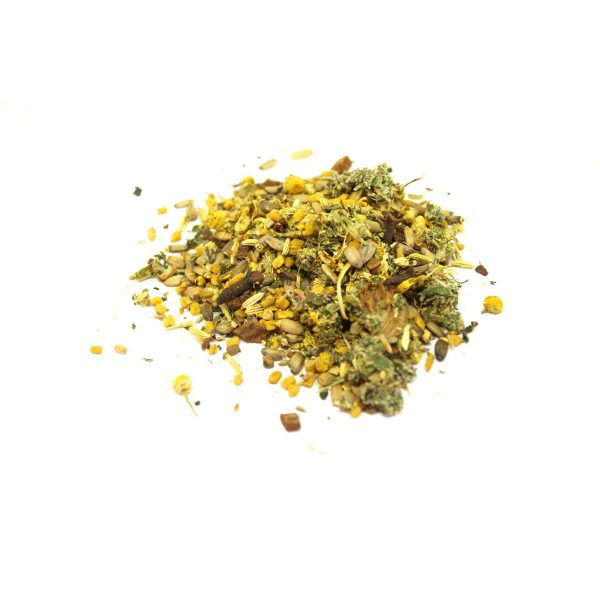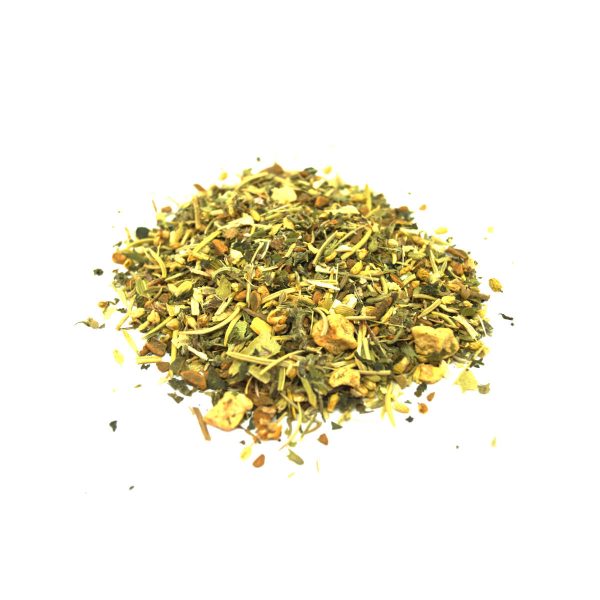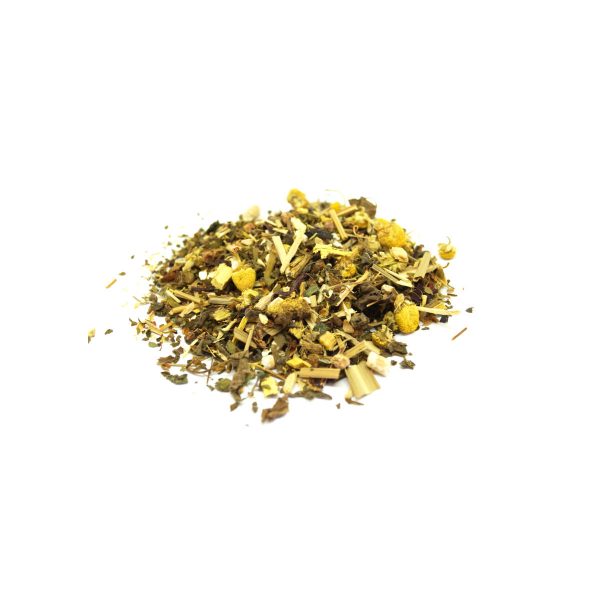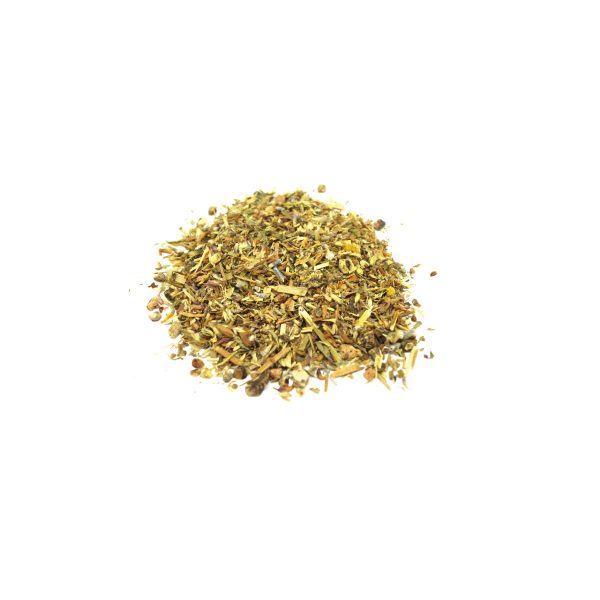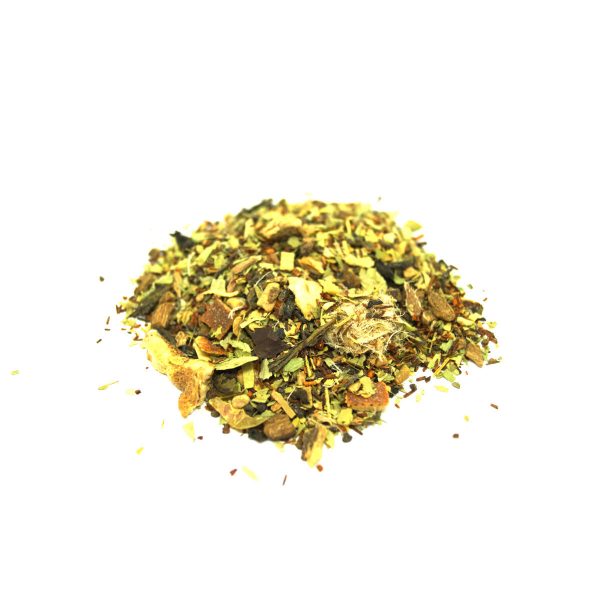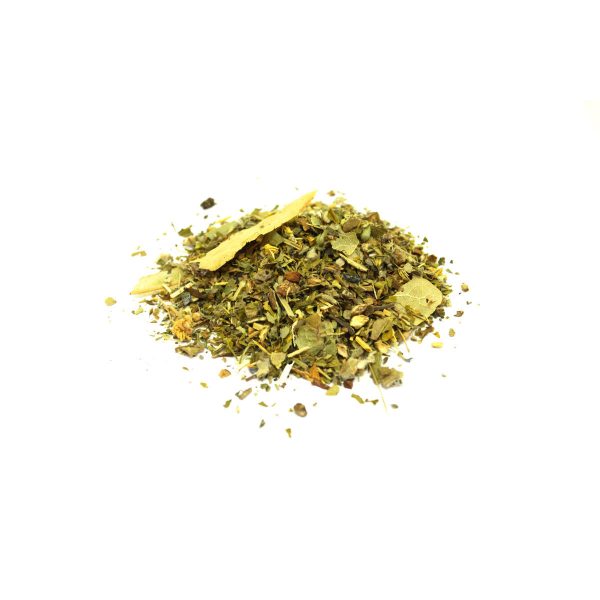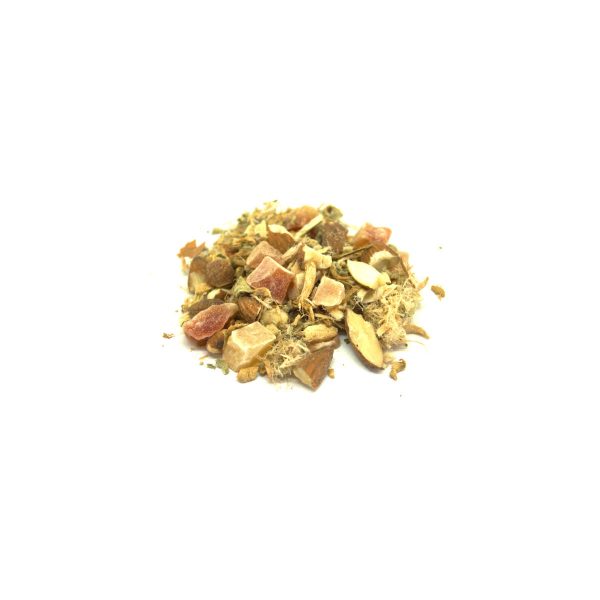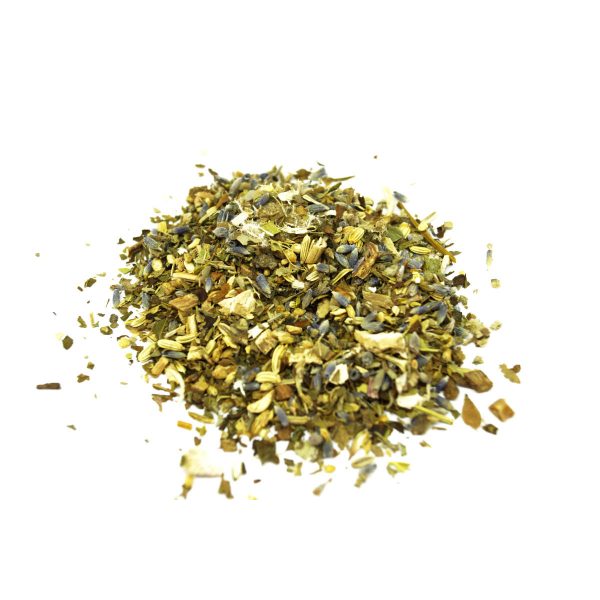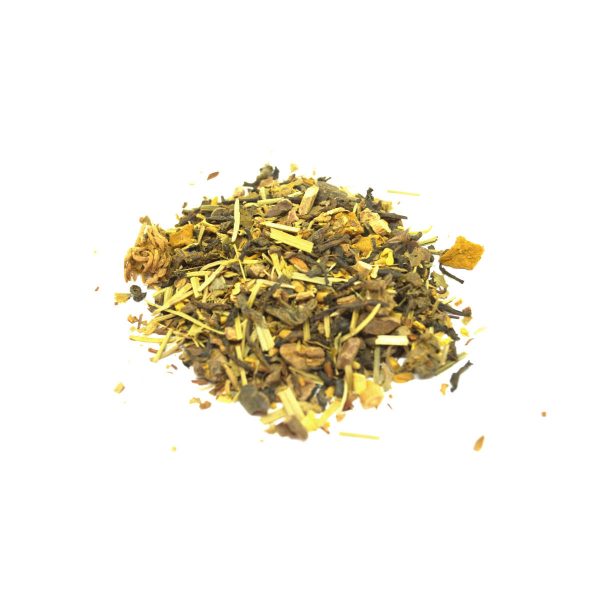With over 400 different kinds of loose tea that will exceed all tea lover’s expectations. You’re sure to find something you will love! All handcrafted by us in North Dakota.
Fertility Women’s ~ Phase 1 Tea ~~ GRAS Certified Ingredients
From: $22.00
Great start to get a healthy reproductive system. See our other Fertility options!
SKU:
Fertility Women's ~ Phase 1 Tea ~~ GRAS Certified Ingredients
Categories: Fertility to 4th Trimester, Teas
Description
Blender’s Notes Fertility Women’s ~ Phase 1 Tea ~~ GRAS Certified Ingredients:
Steep Me Self-Help Tea combinations are a wonderful way to get health benefits outside of the standard tea leaf. In this combination of herbs, we really wanted to offer a blend to help manage and regulate a healthy Female Fertility System. This blend is not focused just on conception but overall healthy fertility. If Conception is your focus, then this blend may be able to help. Female fertility is being able to get pregnant. Have you and your partner been trying to get pregnant by having sex without birth control for at least one year with no success? Not getting pregnant at that time might make you wonder how fertile you are. Anyone can be affected by fertility concerns or problems. What causes female fertility problems? Factors that can have an impact on female fertility include Trouble releasing eggs, called ovulating, or trouble with regular periods. Hormone-related conditions can affect the release of eggs from the ovaries. These conditions include polycystic ovary syndrome, high prolactin hormone levels and thyroid conditions. Other conditions that may change ovulation or periods are poorly controlled diabetes and some autoimmune diseases such as lupus. Uterine or cervical conditions. This includes growth in the uterus, such as polyps or fibroids. Fallopian tube damage or blockage. This can be in one or both tubes through which eggs travel from the ovaries to the uterus. These tubes are Fallopian tubes. Often the cause is pelvic inflammatory disease. Having the tissue that lines the inside of the uterus grows outside the uterus. This is called endometriosis. Early menopause, also called primary ovarian insufficiency. This happens when the ovaries stop working and periods stop before age 40. Bands of scar tissue that bind organs together. These bands are called pelvic or uterine adhesions. They can happen after a pelvic infection, appendicitis, or abdominal or pelvic surgery. Aging. Waiting to try to get pregnant can lower the chance of being able to conceive. As you move closer to your 40s, you lose eggs at a faster rate. And the eggs you have are less likely to become fertile. To protect your fertility, make these healthy lifestyle choices: Do not smoke. Tobacco use is linked with lower fertility. Smoking ages the ovaries, which use up the egg supply too early. If you smoke, ask your healthcare professional to help you quit. Limit or avoid alcohol when trying to conceive. Heavy drinking is linked with a higher risk of problems ovulating. To help when you are trying to get pregnant, stop drinking alcohol. Not drinking is the best choice when you conceive and during pregnancy. Limit caffeine. Drinking less than two hundred milligrams a day of caffeine does not seem to affect being able to conceive. This amount is one or two 6-ounce to 8-ounce cups of coffee a day. Do not exercise too hard or for too long. For people with a healthy weight, too much hard exercise can affect ovulation and lower levels of the hormone progesterone. If you want to become pregnant soon, think about limiting hard exercise, such as running or fast cycling, to less than five hours a week and less than 60 minutes a day. Avoid toxins. There are many toxins in the environment. These include pesticides, dry-cleaning solvents, and lead. They can harm fertility. Be aware of these toxins and discuss ways to limit exposure to them with a member of your healthcare team.
Female fertility: Why lifestyle choices count – Mayo Clinic
In this blend we started with Red Raspberry Leaf. Red Raspberry is rich in nutrients like calcium, iron, and B vitamins. This herb can help to regulate menstrual cycles, making ovulation easier to predict and increasing your chances of conception. Red raspberry leaf contains an alkaloid called fragrine, which helps tone the muscles of the uterine wall. This can improve uterine health and potentially reduce the risk of miscarriage. It may help regulate menstrual cycles, making ovulation easier to predict and increasing the chances of conception. The leaves are rich in vitamins and minerals, including vitamins C, A, and E, as well as calcium and potassium. These nutrients support overall reproductive health. Red raspberry leaf has anti-inflammatory properties, which can be beneficial for conditions like endometriosis and PCOS that affect fertility. It can also improve digestion, which is important for hormonal balance and overall fertility. Next, we added Peppermint. Peppermint can be beneficial for reproductive health in several ways. It helps reduce stress and anxiety, which can positively impact fertility. The menthol in peppermint tea also aids digestion and can alleviate symptoms of bloating and cramping, promoting a healthy reproductive system. Dong Quai was also included because it is a powerful female fertility tonic herb. It is used to regulate hormonal control, improve uterine tone, and improve the timing of the menstrual cycle. Dong Quai promotes regular ovulation and helps with the production of healthy eggs. It is one of the most used Chinese herbs for treating reproductive issues. Dong Quai is also used to support uterine tone and strength, for pelvic pain, for menstrual irregularities, and to encourage menstruation when menstruation has ceased. Yellow Dock because it can help with fertility because it is rich in iron, which can help prevent anemia, a condition that can affect fertility. It has mild laxative properties that can improve digestive health, which is important for overall well-being and reproductive health. Yellow dock is known to help regulate menstrual cycles and address issues like amenorrhea (absence of menstruation), which can be crucial for fertility. Next, we included Sage. Sage is believed to help balance estrogen levels, which is crucial for conception. Estrogen is a key hormone in the reproductive process, and maintaining its balance can improve the chances of getting pregnant. Maca Root is believed to help balance estrogen and progesterone levels in women, which can improve menstrual regularity and increase the chances of successful ovulation and can enhance libido and sexual performance. Beyond fertility, maca is also known for boosting energy, stamina, and overall mood, which can indirectly support reproductive health.
Next, we included Licorice Root. Licorice root has been studied for its potential effects on fertility health and may help restore regular ovulation in women with irregular periods. It may be beneficial for women with polycystic ovarian syndrome (PCOS), a common cause of infertility. Licorice root has estrogenic effects, which might help correct hormone imbalances. It may improve the quality of cervical mucus, which is important for sperm mobility and conception. Black Cohosh because it may help with ovulation and support fertility associated with PCOS. Black cohosh has been found to counter hormonal imbalances and restore hormonal balance, helping restore a normal menstrual cycle, boost ovulation, and promote fertility. Ashwagandha because it may help balance sex hormones like progesterone, which is crucial for fertility. It can improve egg quality, regulate menstrual cycles, and reduce symptoms of polycystic ovary syndrome (PCOS). Ashwagandha is known to reduce stress. Ginger increases blood circulation stimulates the pelvic muscles and boosting energy levels, which can aid the ovulation process. It is also a natural antioxidant that helps protect the reproductive organs from free radical damage, supporting good reproductive health. Wild Yam can help with fertility by Boosting hormone levels, especially estrogen. It can help improve the quality and quantity of cervical mucus, which aids natural conception. Wild Yam can help balance hormones to help regulate menstrual cycles and can stimulate the ovaries to cause hyperovulation, potentially leading to multiple gestation and twins. Mug Wort may help regulate hormone levels due to its compounds like flavonoids and volatile oils. This could potentially support reproductive health. Mug wort is believed to function as a gentle uterine stimulant, which might promote regular menstruation. This can be beneficial for women experiencing irregular cycles and has been used to support the uterine system, including menstruation and childbirth.
The final ingredients we included are Damiana, Fo-Ti Root, Burdock Root, and Sarsaparilla. Damiana is known to increase hormone secretion in women, it can regulate critical reproductive hormones such as progesterone. It helps balance hormones, which are essential for reproductive health. Damiana can help regulate menstruation and relieve menstrual pain. It may strengthen the ovaries and promote the growth of healthy eggs. Fo-Ti Root is a traditional Chinese herb that has been used for centuries to support fertility and overall health. It is often used to increase libido and sexual vigor in women. The herb helps nourish the liver and kidneys, which are crucial for hormone production and reproductive health. Fo-ti may help in regulating menstrual cycles and improving overall reproductive health. Burdock Root is good for reproductive health and can help increase fertility overall while also helping increase levels of testosterone naturally. Burdock supports fertility by strengthening the uterus and purifying the liver and gallbladder for optimal hormonal balance. Sarsaparilla can help those who have hormonal imbalances. It is regarded as a supportive reproductive tonic for both males and females. This means it can also help those who have infertility issues. Traditional herbalists often use it as both a reproductive organ and glands tonic medicine.
** Usage: As a fertility tea, we would like to see you get thru the first ounce, make sure we are going to be good with the tea, then have you go all in and do a 2-3 teaspoon serving daily for three menstrual cycles. Note how the cycles are changing, share that with us, so we can gauge how to proceed. We have a couple herbs not in the tea, so we have room to negotiate based on the 3-cycle outcome. We are looking for balance of progesterone to estrogen, among other healing benefits, and we can negotiate that based on the data. After the three cycles, we like our peeps to take a week off, then we can decide to continue or move onto Fertility Phase 2. The data can be shared by email or by phone call. **
Fertility Phase 2 ~ Capsule Only ~ I can be added after 90 Days on Phase 1 ~ Find it Here! Fertility Women’s ~ Phase 2 Capsules
In the second stage of our Fertility teas is Fertility Phase 2. As we graduate out of phase 1, we intended to build a platform of simply making the fertility system of better health, among many advantages but the big one is increasing circulation, we take a week off and allow the body some natural healing. Phase 2 gets much deeper in the nutrition of the system. The base recipe of Phase 1 is used in Phase 2, so we continue to build on that circulation base the added ingredients then work to use that increased circulation to nourish. Phase 2 investigates the pituitary gland and helps “flex its muscle” to produce balanced reproductive hormones. We do have a tea available (Pituitary Health Phyto~Nutrition Tea) to heal specifically the pituitary gland.
We reduce usage to about 2 capsules or 3 teaspoons of steeped tea 3 times a week. Phase 2 has gone on up to 18 months and God blessed that family with a baby. All our success stories, which we do not share, are based on god’s will and what the planet provides.
In this blend we take all the healthy and healing herbs of Fertility Phase 1 and add in a few extra boosters. In this blend we added Chasteberry. Chasteberry, also known as Vitex agnus-castus, has been used for centuries to address various hormonal issues, including those related to fertility. Chasteberry helps balance hormones by influencing the pituitary gland, which regulates the production of hormones like progesterone. This can be particularly beneficial for women with luteal phase defects, where insufficient progesterone production can hinder pregnancy. The luteal phase is the period between ovulation and the start of menstruation. Chasteberry can help lengthen this phase and improve progesterone levels, which are crucial for maintaining a pregnancy. By alleviating symptoms of premenstrual syndrome (PMS) such as breast pain, headaches, and mood swings, chasteberry can create a more favorable environment for conception. Chasteberry has been linked to improved menstrual cycle regularity, which is essential for predicting ovulation and increasing the chances of conception. Next, we added our Steep Me Medicinal Mushroom Blend. Steep Me Medicinal Mushrooms have been traditionally used in supporting fertility. These mushrooms are known to support hormonal balance and reduce inflammation, which can be beneficial for reproductive health. Medicinal Mushrooms have shown promise in improving ovulation rates in women with polycystic ovary syndrome (PCOS). These mushrooms may help regulate insulin sensitivity and reduce pelvic inflammation. Mushrooms are rich in vitamins, minerals, and antioxidants, which are essential for overall health and can indirectly support fertility. Finally, we included Shatavari. Shatavari has been used to promote fertility and have a range of health benefits, particularly for the female reproductive system. The herb is thought to be adaptogenic, which means that it may help to regulate the body’s systems and improve resistance to stress. Shatavari helps regulate menstrual cycles and supports healthy ovulation by balancing hormones. It can alleviate symptoms of polycystic ovary syndrome (PCOS) and other hormonal imbalances, and it can improve natural lubrication, making intercourse more comfortable.
~~This product has been officially lab tested and meets the requirements for GRAS (General Regarded as Safe) Testing ~ a designation directed by the FDA for food and supplements. It was tested by Public Health Microbiology Foundation, and they officially consider this product a “non-TCS commodity” and is safe as a human food product & human dietary supplement~~
NOTE: “This/these claim(s) have/have not been evaluated by the Food and Drug Administration. This product is not intended to diagnose, treat, cure or prevent any disease.”
Features Fertility Women’s ~ Phase 1 Tea ~~ GRAS Certified Ingredients:
- Leaves can be infused all day! (They will not get bitter)
- Lots of individual flavor based on the ingredients
- All Wildcrafted Herbs
- All Organic where Wildcrafted is not available
- Sweet and Minty
- Light Red Colour Cup of Tea
- Full of natural antioxidants
- Sample Size ~ 1 oz will make 8-10 16 oz teas
- Sealed Bag ~ 4 oz will make 32-40 16 oz teas
- Iced Tea ~ Always Double the amount of Tea for the same size cup!
- Per Serving ~ 1 tsp per 6 oz of H2O
- Recommend 3 tsp Per Day – resteep leaves 2-3 times
- Caffeine: None
Ingredients: Steep Me Proprietary Organic and Wildcrafted Blend of Red Raspberry Leaf, Peppermint Leaf, Dong Quai, Yellow Dock Root, Sage Leaf, Maca Root, Licorice Root, Black Cohosh, Ginger Root, Wild Yam, Mug Wort, Damiana Leaf, Fo-Ti Root, Burdock Root, and Sarsaparilla
Alternatively, try our Fertility Women’s Phase One Phyto~Nutrition Capsule OR Birth Control Detox Phyto~Nutrition Tea OR Birth Control Detox Phyto~Nutrition Capsules OR Women’s Fertility Micro~Nutrition Capsules OR Ovarian Healthy Micro~Nutrition Capsules OR Testosterone Boost Phyto~Nutrition Capsules OR PCOS Phyto~Nutrition Capsules
Not Safe for Pregnancy
Not Safe for Breastfeeding
NOTE: This/these claim(s) have/have not been evaluated by the Food and Drug Administration. The products offered by Steep Me Tea Apothecary -Franchisees – Wholesalers – Influencers or SteepMe.com are not intended to treat, cure, or prevent any illness or disease. If you have or suspect that you have a medical problem, consult with your physician for diagnosis or treatment. All gender specific blends are based on Gender Assigned at Birth. Use herbs as per instructions and always watch for any allergic reactions. You should always carefully read all product packaging and labels. Always consult your physician or health care provider before using any herbal products, especially if you have a medical problem. Steep Me Tea Apothecary and SteepMe.com and/or its proprietors assume no liability for any injury, illness or adverse effects caused by the misuse and/or use of the information or products presented
NOTE: When using Teas, Capsules, Tinctures and Micro-Nutrition to help with your ailment ~ please remember this is a marathon ~ we recommend an investment of time of at least 6 months to see positive change. Any gender specific blends are based on gender assigned at birth.
“Processed in a facility that also processes food containing milk, egg, fish, peanut, shellfish, soy, tree nuts, wheat, and sesame. May contain traces of milk, egg, fish, peanut, shellfish, soy, tree nuts, wheat, and sesame.”

CUSTOMER TESTIMONIAL: One of our great customers Veronica H. who has been trying for years to have a baby…Read her story..it is amazing because there is hope and god does amazing things! She allowed us to publish her story!
Over the past 5 years I have taken EVERYTHING. I can’t remember all the names but basically any fertility supplement one could find on Amazon I took . All of them promising a boost in fertility in some way shape or form and many containing chasteberry & vitex. I learned very quickly that any supplement with vitex royally messed up my cycle . I also tried vitamin B6 to raise my progesterone and vitamin C supplements that were supposed to improve cervical mucus quality. I tracked my cycles obsessively, used LH strips to make sure I was trying to conceive at the right time ,took my basal body temp, read every Trying to conceive blog that could be found online! Not to mention probably tried some rather unconventional methods from the well known raising your legs to standing on my head and drinking grapefruit juice for a week straight during my two week wait . During all of this chaos I was also going to the doctor and they found things here and there but unfortunately there is still so much unknown about the female reproductive system there wasn’t a pin point “this is why you can’t get pregnant” I was officially diagnosed with Unexplained infertility which is basically a catch all for you have a few things wrong with you but nothing thats absolutely fixable and known .
Fast forward to this last year where I had more or less given up and reverted to just taking a prenatal vitamins and praying that maybe just maybe someday we would have a baby.
My mom had just gotten back from Fargo and she brought me your fertility tea and I thought why not ? I was already an avid drinker of your insomnia helper tea so I knew the fertility tea had to be equally amazing . I literally tried everything else under the sun what’s one more ? I admit I wasn’t overly hopeful but I didn’t think it would hurt and I figured in a few months were going to be looking at IUI regardless.
I took your tea religiously 3 times a day 2 tsps in my thermos in the morning which I refilled once while at work reusing the tea leaves and 2 teaspoons again once I got home . I would also reuse those tea leaves once more in the afternoon and make 1 last cup with 1tsp at bedtime .Basically if I was drinking anything it was hot tea or resteeped leaves . I believe with that regimen 1 canister lasted me about 1 cycle . I finished off two tins and it was at the end of that cycle I got my positive! I truly believe that this tea played a huge part in helping us conceive our little miracle ! We find it very fitting that our due date is Dec 23 . We couldn’t ask for a better Christmas present. Thank you so much for your support ! We are incredibly grateful that Steep Me a Cup of tea exists with such wonderful people who are so knowledgeable and truly made me feel special! To this day I won’t buy my tea anywhere else and I know where to go for any ailments or future baby planning 😉 . Thank you a million times and God bless !
Anyways I found out I was pregnant April 11th and i honestly took a test to prove to myself that I wasn’t so I could chalk up another failed month and move on because that two week window of testing kills me every single time . I had recently started taking my basal body temp to confirm if I was ovulating before we went back to the doc in June . In June I was scheduled to do another round of blood work and Keith would do another test to verify his results ( also were not great ) so together we were under the impression that we would begin to look at IUI or adoption at that point as IVF wasnt even on the table . Sooo April 11 6 days before my period I decide I’m going to take a test because I have one good one left . Imagine my surprise when it was positive ! I came running out of the bathroom screaming at Keith do you see it ?! do you see another line !! As soon as he said he did I fell on the floor uncontrollable sobbing mess of Joy . Keith just held me and kept saying wow , wow. Over and over again . After I composed myself we prayed and thanked God for a little miracle and I texted Addy a pic . She was in a meeting didn’t see it so I called her and I said whatever you’re doing right now this is more important look at your text . She did and then she was crying and we were both crying and it was amazing. Over the next several days I took roughly 20 preg tests !! We just couldn’t believe it. I never thought I’d see those two pink lines and I could not get enough of them .Keith and I kept going back and looking at the tests every few minutes. It was truly wonderful .I can’t even put into words how overjoyed we were .
So that’s how we found out !
Additional information
| Weight | N/A |
|---|---|
| Size | , , |
Benefits
Tisane or Herbal Tea or Self-Help Tea
- Naturally Caffeine Free – unless specified
- Can be a powerful source of hydration
- Many self-help teas are based on multiple herbs giving a natural solution
- Great taste and can be steeped for long period of time
- Great options for kids who are learning to like tea
- Can taste like anything you want it to
When talking about the many types of tea, Tisane (Herbal Infusion) or Herbal Tea or Self-Help Tea is really not tea at all. It is made like a tea and all the same items are used to make it, but it does not contain the Camellia Sinensis Plant (unless stated), but is simply roots, flowers, leaves, and fruits put together is a combination that is made just like a tea. With that being said…the health benefits of a Tisane or Herbal teas are different. They can vary depending on the ingredients and combination of herbs so there are no blanket health benefits – just depends on the ingredients.
For many, the best part of Tisane or Herbal Tea or Self-Help Tea is the fact that it is caffeine free naturally. Of course there are herbs that can be added to change that. The most popular Herbal teas include Chamomile, Peppermint, Spearmint, and any combination of fruit blends or infusions. Our Self-Help Teas are simply supplemental herbal combinations to aid with an occasional ailment specific to what may be happening in your life. The teas are built to work and are not build with any specific flavorings. The blends are tested to the minimum requirements laid out by Steep Me A Cup of Tea. The taste provided is natural to the herbs present in the blend. No flavorings added.
This/these claim(s) has/have not been evaluated by the Food and Drug Administration. The products offered by Steep Me Tea Apothecary -Franchisees – Wholesalers – Influencers or SteepMe.com are not intended to treat, cure, or prevent any illness or disease. If you have or suspect that you have a medical problem, consult with your physician for diagnosis or treatment. Use herbs as per instructions and always watch for any allergic reactions. You should always carefully read all product packaging and labels. Always consult your physician or health care provider before using any herbal products, especially if you have a medical problem. Steep Me Tea Apothecary and SteepMe.com and/or its proprietors assume no liability for any injury, illness or adverse effects caused by the misuse and/or use of the information or products presented.
Related products
Adrenal Insufficiency ~ Fatigue ~~ GRAS Certified Ingredients
From: $22.00
This is a great self-help tea for Adrenal Insufficiency and Fatigue...these hand-crafted herbs combine to allow your adrenal system to restore and repair for better recovery and reduced stress.
Select options
This product has multiple variants. The options may be chosen on the product page
DeStressor
From: $20.00
This is a great blend of herbs to help reduce the stress that is happening in your life. Meant to calm the mind and has a natural antidepressant. This combination of herbs can help solve the symptoms associated with high stress and agitation.
Select options
This product has multiple variants. The options may be chosen on the product page
Happy Belly
From: $14.00
This is a great tea if you need to get going....this stimulant based blend will get the "poo" to "GO"!
Select options
This product has multiple variants. The options may be chosen on the product page
Headache
From: $19.00
Looking for a great alternative for the occasional headache or migraine - having a warm tea can sometimes make the difference. The herbs in this blend can help with some of the symptoms.
Select options
This product has multiple variants. The options may be chosen on the product page
Heartburn
From: $14.00
This is a great option if you suffer from occasional heartburn. Great tasting tea that can help to sooth any heartburn you may feel.
Select options
This product has multiple variants. The options may be chosen on the product page
Irritable Bowel Syndrome ~ IBS
From: $15.00
Looking for a great help to your Irritable Bowel Syndrome to slow down your going...this is a great blend that has been with us since 2008 to help with all your IBS concerns.
Select options
This product has multiple variants. The options may be chosen on the product page
Kidney ~ Bladder
From: $16.00
Select options
This product has multiple variants. The options may be chosen on the product page
Tummy Tamer
From: $13.00
Looking for a great option for the occasional tummy ache! A great tea with ginger and peppermint to help with a sour tummy! Pregnancy Safe!!
Select options
This product has multiple variants. The options may be chosen on the product page

